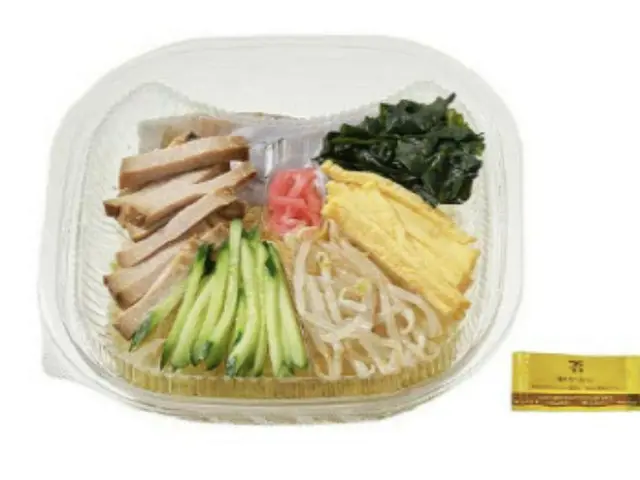The aim is to increase the use of domestically produced wheat in response to the shortage of wheat flour from overseas. According to the Korea Agro-Fisheries and Food Trade Corporation's agricultural and food export information, Japan relies on imports for the majority of its wheat flour supply.
In 2023, Japan's wheat cultivation area will be 232,000 hectares, with production of 1,094,000 tons and imports of 5,026,000 tons. The United States will be the source of imports, with 1,941,000 tons.
The largest amount was in tons, followed by Canada (1,928,000 tons) and Australia (1,150 tons). Seven-Eleven Japan will begin selling cup udon and Chinese noodle products from spring 2024.
All of the flour used for noodles and bento boxes is domestically produced. With overseas supply networks being unstable, using domestically produced flour ensures a stable supply. From now on, bread products
The company plans to increase its use of domestically produced wheat flour in the future, and the demand for domestic wheat flour is expected to increase. Seven-Eleven Japan has about 20 products that use domestic wheat flour.
The company will use domestic wheat flour for noodles and bento boxes, excluding other items. The company's use of domestic wheat flour will be approximately 13,500 tons in 2023, a 50% increase from 2021, and the usage ratio will increase from 5% to 100%.
The ratio of wheat flour used in Japan to wheat flour used in other countries has increased to 80%. If all wheat flour were to be converted to domestically produced flour, it would amount to using about 2% of Japan's wheat production.
Seven-Eleven Japan is the world's fifth largest wheat importer as of fiscal 2021.
The company has been shifting to domestically produced wheat flour since fiscal 2022, when the stable supply of imported wheat became uncertain due to the war between Ukraine and Russia.
Starting in October 2011, the wheat flour used for Chinese noodles has been entirely replaced with domestically produced flour. It is very rare for convenience stores like Seven-Eleven to use domestic wheat flour for noodles and bento lunches.
A Seven & i Holdings official said, "Domestic wheat flour has a nice aroma and a chewy texture when used in udon noodles, and has a taste and quality that makes it easy to use."
In some areas, products are made using wheat flour produced in the area, which also contributes to local production and consumption.
For bread products, the company is promoting the use of domestically produced wheat flour.
The company's "Fluffy Melon Bread Made with Domestic Wheat" will use only domestically produced wheat flour from November 2022. From October 2023, the company will also start using domestically produced wheat flour for its croquette bread and Danish pastries.
Seven-Eleven Japan will use approximately 5,500 tons of domestically produced wheat flour in fiscal 2023, an increase of approximately 80% compared to 2021, and the proportion of domestically produced wheat flour used will increase from 0.3% to 20%.
An official from the Korea Agro-Fisheries and Food Trade Corporation said, "The supply of grain resources such as flour remains unstable due to the war between Russia and Ukraine.
Selling products made only with domestically produced wheat flour at Seven-Eleven, a chain of convenience stores, is not only beneficial for the stable supply of wheat flour, but also for improving farmers' incomes and developing the local economy.
"It will have a positive impact," he added. "Currently, various efforts are being made in Korea to stimulate consumption of domestically produced wheat flour. The food and retail industries should take inspiration from Japan's example.
It would be helpful if they could work together to carry out their activities," he added.
2024/04/14 07:03 KST
Copyrights(C) Edaily wowkorea.jp 107

